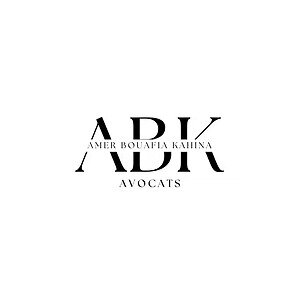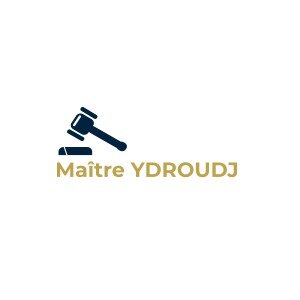Best Animal Law Lawyers in Algeria
Share your needs with us, get contacted by law firms.
Free. Takes 2 min.
Or refine your search by selecting a city:
List of the best lawyers in Algeria
About Animal Law in Algeria
Animal Law in Algeria addresses the rights and welfare of animals, encompassing various aspects such as ownership, protection against cruelty, and responsibilities of animal handlers. The legal framework is designed to ensure humane treatment of animals and balance human-animal interactions. While Algeria does not have a comprehensive and distinct Animal Law, regulations related to animal welfare are integrated into existing agricultural, environmental, and penal codes.
Why You May Need a Lawyer
Individuals may seek legal assistance in Animal Law in Algeria for various reasons. Common situations include disputes over animal ownership, dealing with cases of animal abuse or neglect, navigating the import and export regulations for animals, and understanding the responsibilities and liabilities as an animal owner or handler. Additionally, businesses involved in activities like animal breeding, farming, or veterinary services may require legal guidance to ensure compliance with local regulations.
Local Laws Overview
The key aspects of local laws related to Animal Law in Algeria include:
- Animal Cruelty: Algerian law prohibits acts of cruelty towards animals, and offenders may be subject to fines or imprisonment.
- Animal Ownership and Trade: Regulations exist to oversee the ownership, breeding, and sale of animals, ensuring ethical treatment and disease prevention.
- Wildlife Protection: Laws are in place to protect native wildlife species from poaching and illegal trade.
- Health and Safety Standards: Guidelines are enforced for the transport and handling of animals to prevent the spread of zoonotic diseases.
- Veterinary Practices: Legal standards govern veterinary services, ensuring professional and humane care for animals.
Frequently Asked Questions
What constitutes animal cruelty under Algerian law?
Animal cruelty includes acts that cause unnecessary suffering, injury, or distress to an animal. This can range from physical abuse to neglecting basic needs such as food, water, and shelter.
How can one report animal abuse in Algeria?
Animal abuse can be reported to local law enforcement or relevant governmental bodies, such as the Ministry of Agriculture, which may investigate the claims and enforce penalties.
Are there specific laws regulating pet ownership in Algeria?
Yes, pet ownership is regulated by guidelines that emphasize responsible care, including vaccination requirements and restrictions on exotic pets.
What legal obligations do businesses involved with animals have in Algeria?
Businesses must comply with health and safety regulations, ensure humane treatment of animals, and adhere to licensing requirements for animal-related activities.
Is animal testing regulated in Algeria?
Animal testing is subject to veterinary and legal oversight to ensure ethical practices and minimize suffering.
What protections are in place for endangered species in Algeria?
Endangered species are protected under national and international conservation laws, with restrictions on hunting, trade, and habitat destruction.
Can livestock farmers face legal issues related to Animal Law?
Yes, livestock farmers must adhere to animal welfare standards, environmental regulations, and health guidelines to avoid legal issues.
What are the penalties for violating Animal Law in Algeria?
Penalties can vary from fines to imprisonment, depending on the severity of the offense and whether it involves domestic, wild, or farm animals.
How are veterinary practices regulated?
Veterinary practices are regulated by professional standards, requiring licensed practitioners to provide ethical and competent care.
Are there cross-border laws regarding the import and export of animals?
Yes, Algerian law regulates the import and export of animals to control disease spread and protect local biodiversity, in alignment with international agreements.
Additional Resources
For legal advice related to Animal Law in Algeria, the following resources may be helpful:
- Ministry of Agriculture: Responsible for animal welfare policies and regulations.
- Professional Veterinary Associations: Provide guidance and standards for veterinary practices.
- Local Animal Welfare NGOs: Offer support and advocacy for animal rights and welfare.
Next Steps
If you need legal assistance in Animal Law in Algeria, consider the following steps:
- Identify Your Issue: Clearly define the legal issue or concern you need assistance with.
- Consult with a Lawyer: Seek advice from a legal professional specializing in Animal Law for guidance tailored to your situation.
- Collect Evidence: Gather relevant documents, photos, or testimonials that may support your case.
- Understand the Legal Process: Be informed about the procedures and potential outcomes involved in your legal matter.
- Review Local Regulations: Familiarize yourself with applicable laws and regulations to better understand your rights and obligations.
Lawzana helps you find the best lawyers and law firms in Algeria through a curated and pre-screened list of qualified legal professionals. Our platform offers rankings and detailed profiles of attorneys and law firms, allowing you to compare based on practice areas, including Animal Law, experience, and client feedback.
Each profile includes a description of the firm's areas of practice, client reviews, team members and partners, year of establishment, spoken languages, office locations, contact information, social media presence, and any published articles or resources. Most firms on our platform speak English and are experienced in both local and international legal matters.
Get a quote from top-rated law firms in Algeria — quickly, securely, and without unnecessary hassle.
Disclaimer:
The information provided on this page is for general informational purposes only and does not constitute legal advice. While we strive to ensure the accuracy and relevance of the content, legal information may change over time, and interpretations of the law can vary. You should always consult with a qualified legal professional for advice specific to your situation.
We disclaim all liability for actions taken or not taken based on the content of this page. If you believe any information is incorrect or outdated, please contact us, and we will review and update it where appropriate.
Browse animal law law firms by city in Algeria
Refine your search by selecting a city.









